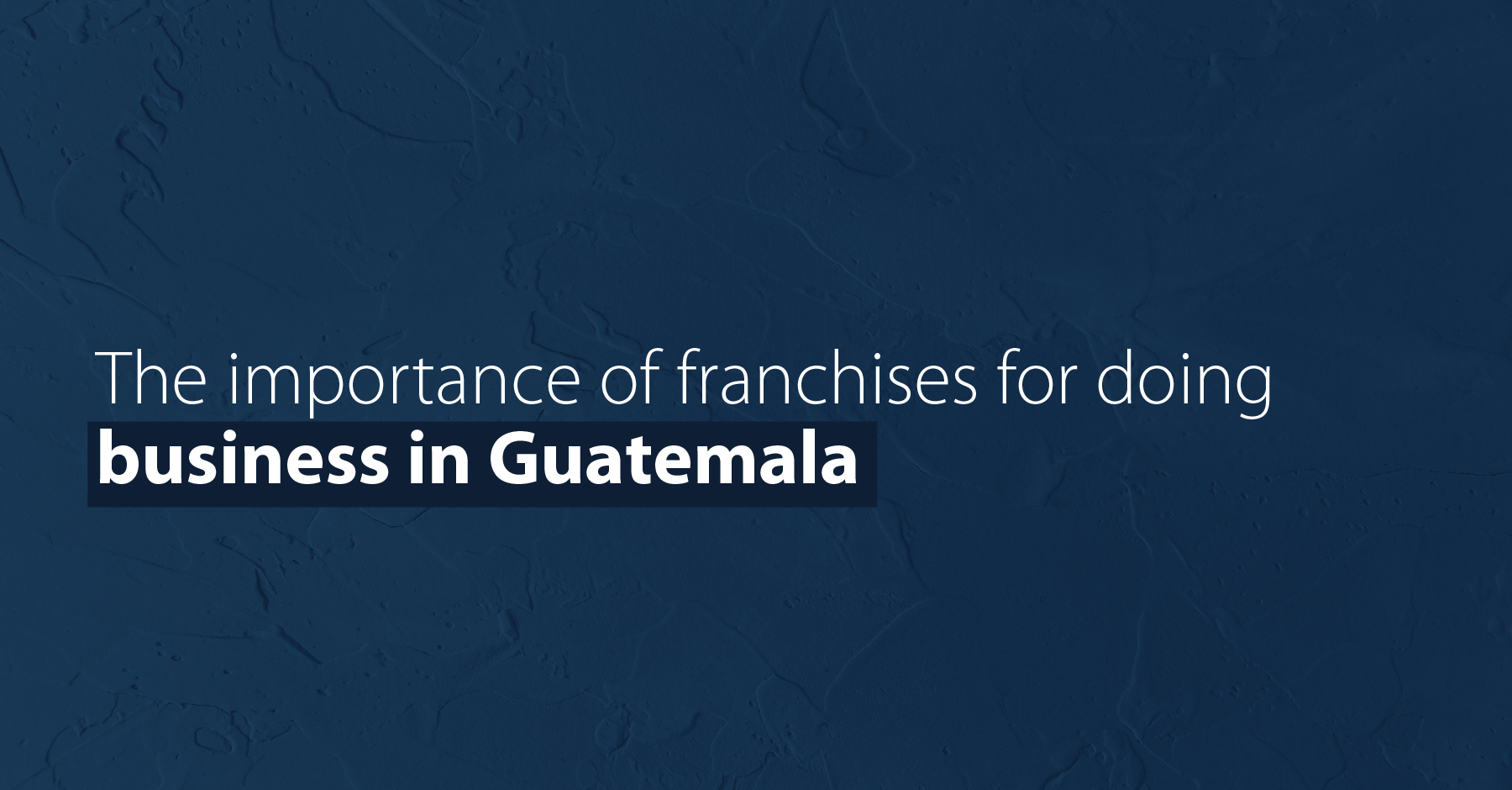Jeaneth Divas
Senior Associate
Guatemala
[email protected]
Legal framework of the Franchise Agreement in Guatemala
Franchising is a result of commercial expansion around the world; it is a way by which a merchant/entrepreneur who already has an established, proven, and successful business model in the marketing of its products and services under an identifying trade name, and therefore a booming business, can be operated by an independent third party who wants to invest in this business, paying an entry fee and costs for the implementation of franchise acquisition through the time-honored Franchise Agreement (FA).
The Franchise Agreement is not subject to regulation in Guatemala; it is considered an atypical commercial contract without legal definition that derives from the freedom between parties to contract under the principles of Commercial Law of good faith and known truth, with the supplementary application of Guatemalan Civil Law.
In simple terms, the FA regulates the terms and conditions between the owner of the business (Franchisor) and the purchaser of the rights to own and operate an already recognized and successful enterprise (Franchisee), paying an initial fee as a percentage of the royalties on the sales that the franchise will generate to the Franchisor; this is to acquire the right to operate a replica of the business and guarantee the Franchisee’s investment.
Benefits of the Franchise Agreement
Franchisor is the owner of the business or the brand. Franchisee is a person who wants to adopt the Franchisor’s format to initiate a money-making business of proven success.
Franchisor benefits. Through franchising, a business can expand territorial growth at an accelerated rate, thus reaching the entire local and even international market with less financial risk or frustration since often access to credit or financing (at least in Guatemala) becomes one of the main obstacles that limit the growth of a business. So, franchising is ideal and opens the possibility to grow through investment by a Franchisee, not the Franchisor.
The Franchisor always controls its business model since it is a characteristic of the FA to incorporate in its clauses knowledge of the business, the Know-How contained in manuals, systems and operating guides, as well as quality control mechanisms of the products or services, are all property of the Franchisor.
The Franchisor may receive an entry fee (initial investment) paid by the Franchisee, royalties, a percentage of the net sales generated by franchise operation, or a fee according to the terms established.
Franchisee benefits. The Franchisee receives all the Know-How, including training, manuals, a business model, and a brand known by customers, all of which make it easier to position a newcomer in the market, reducing the risk of investment.
Under the terms of the Franchise Contract, a Franchisee can project how long it will take to recover the initial investment or the extent of first-year profits, etc., unlike starting a business from scratch without customers, market positioning, experienced management, or in-depth knowledge of the market; quite different from the Franchisor who has already traveled this path.
Terms and conditions of the Franchise Agreement
Since the FA is without regulation under national law, special care is needed to prepare the agreement and establish the scope of the business model and each party’s rights and obligations. At a minimum, the FA should include the following clauses.
- Business Model description clause: Characteristics, structure, benefits, and logistics of the business model for the commercialization of the product or provision of the service; Marketing (advertising, including materials, billboards, and sales strategies, promotions); Know-How of operating requirements, obligations, quality standards, manuals, inventory annex, exclusive suppliers, etc.
- Economic considerations: Regarding the initial payment, it is necessary to specify what the first item of investment includes, how the remuneration for the Franchisor will be calculated, and determine the periodic royalties or the percentage of gross sales, including terms, deadlines, payment method, etc.
- License to use the trademark: In the case of the Franchisee, the payment for trademark use of the brand must either be determined or included as part of the remuneration to the Franchisor.
- Territory to which the Contract will be subject: Not only circumscribe Guatemala but also delimit the fairly exact territorial boundaries.
Dispute Resolution and Arbitration
The parties should contemplate adding an arbitration clause to the Franchise Agreement excluding reasonable economic options from court jurisdiction, which would be a concrete recommendation in Guatemala. In case of not opting for arbitration, since the contractual matter is commercial, the corresponding judicial proceeding is the Summary Judgment.
It is appropriate to refer to the Judgment handed down by the Fifteenth Civil Court of First Instance of the Department of Guatemala, Second Official, within the Summary Judgment identified with File No. 01165-2011-00917, promoted by a Franchisee against the Franchisor in which the Judge recognizes the freedom of contracting of the parties and the scope established in the Franchise Agreement; especially because it takes into account the elements and limits that were freely agreed to by the contracting parties for operating the Franchise, the will of the parties prevailing in the judicial decision.
In conclusion, a Franchise is an excellent strategy to do business and expand geographic coverage and sales. We highly recommend seeking experienced legal advice in preparing the Franchise Agreement. Since franchising is without regulation in Guatemala, an FA that establishes the will of the parties and the scope of the respective rights will prevail.




